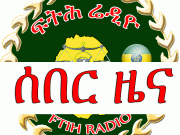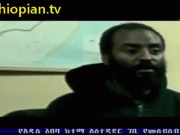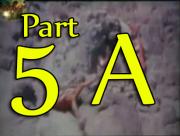"In the Light of the Qur'an"2006 / 2009Presented by Shaikh: Moutasem Al-HameediFirst Series (2006) 1- 30Second Series (2009) 31 - 52Name: Moutasem al-HameedyEducation* Has studies at al-Albaani Center since 2001* Studies under the prominent students of Sheikh al-Albaani:Sheikh Mashhoor Hasan (Hadeeth and Usool al-Fiqh)Sheikh Ali al-Halabi (Hadeeth and Aqeeda)Sheikh Hussain al-Awaaysha (Fiqh and Manners)Shekih Abu Suhaib (Imaam at Wise Islamic Centre in the UK)Sheikh Ayman as-Saadiq (Arabic grammar and morphplogy)Dr. Malik Sha'ban (Aqeedah, Tafseer)Work in Da'wa:* Imaam and lecturer at Ibn Taymiyyah Mosque (London, UK)* Imaam and lecturer at Call to Islam Islamic Centre (Luton, UK)* Lectured at British universities and schools on Islam.* TV shows preparer and presenter, Huda TV.Areas of interest:* Usool al-fiqh* Mutalah al-Hadeeth* SeerahThe Quran (English pronunciation: /kɒˈrɑːn/ kor-ahn; Arabic: القرآن al-qurʾān, IPA: [qurˈʔaːn],[variations] literally meaning "the recitation"), also transliterated Qur'an, Koran, Alcoran, Qur'ān, Coran, Kuran, and al-Qur'ān, is the central religious text of Islam, which Muslims consider the verbatim word of God[1] (Arabic: الله, Allah). It is regarded widely as the finest piece of literature in the Arabic language. The Quran is divided into 114 suras of unequal length which are classified either as Meccan or Medinan depending upon their place and time of revelation.Muslims believe the Quran to be verbally revealed through angel Jibrīl (Gabriel) from God to Muhammad gradually over a period of approximately 23 years beginning in 610 CE, when Muhammad was 40, and concluding in 632 CE, the year of his death.Shortly after Muhammad's death the Quran was compiled into a single book by order of the first Caliph Abu Bakr and at the suggestion of his future successor Umar. Hafsa, Muhammad's widow and Umar's daughter, was entrusted with that Quranic text after the second Caliph Umar died. When the third Caliph Uthman began noticing slight differences in Arabic dialect, he sought Hafsa's permission to use her text to be set as the standard dialect, the Quraish dialect now known as Fus'ha (Modern Standard Arabic). Before returning the text to Hafsa, Uthman made several thousand copies of Abu Bakr's redaction and, to standardize the text, invalidated all other versions of the Quran. This process of formalization is known as the "Uthmanic recension". The present form of the Quran text is accepted by most scholars as the original version compiled by Abu Bakr.Muslims regard the Quran as the main miracle of Muhammad, the proof of his prophethood and the culmination of a series of divine messages that started with the messages revealed to Adam, regarded in Islam as the first prophet, and continued with the Suhuf Ibrahim (Scrolls of Abraham), the Tawrat (Torah or Pentateuch) of Moses,the Zabur (Tehillim or Book of Psalms) of David, and the Injil (Gospel) of Jesus. The Quran assumes familiarity with major narratives recounted in Jewish and Christian scriptures, summarizing some, dwelling at length on others and in some cases presenting alternative accounts and interpretations of events. The Quran describes itself as a book of guidance, sometimes offering detailed accounts of specific historical events, and often emphasizing the moral significance of an event over its narrative sequence.http://en.wikipedia.org/wiki/Quranhttp://www.tvquran.com/en/http://quran.com/
- Category
- English Da'awa
Be the first to comment







![FTIH RADIO 13th [ፍትህ ሬዲዮ] 13ኛ](http://www.bilaltube.com/uploads/thumbs/01cc30608-1.jpg)

![FTIH RADIO 15th [ፍትህ ሬዲዮ] 15ኛ](http://www.bilaltube.com/uploads/thumbs/171967b06-1.jpg)

![FTIH RADIO 25th [ፍትህ ሬዲዮ] 25ኛ](http://www.bilaltube.com/uploads/thumbs/e9985f3de-1.jpg)
